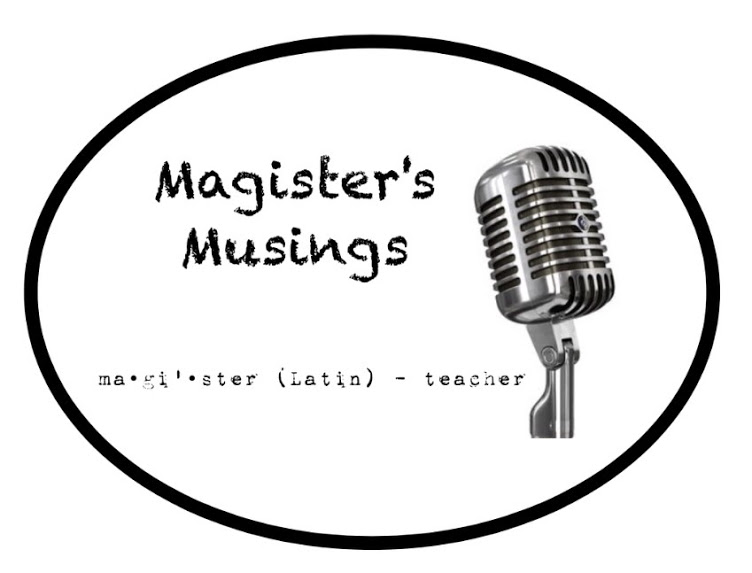When I was a child, I spoke like a child, I thought like a child, I reasoned like a child. When I became a man, I gave up childish ways. -- 1 Corinthians 13:11, ESV
Our school's chapter of the Indiana Junior Classical League offers a scholarship each year to one of our graduating seniors. Part of the application requires that candidates pick a Latin quotation and use it as the basis for a discussion of the benefit of Classics to them and their own interest in Classics.
This year one of our seniors chose, "Nescire autem quid ante quam natus sis acciderit, id est semper esse puerum." This is Cicero's famous statement, "Not to know what happened before you were born is to remain forever a child," and it comes from Orator, 119. At the end of a thoughtful essay, this student, who began as an 8th grader and thus took five years and prepared for the A.P. and I.B. tests along the way, had this to say.
 |
| Cicero |
"So ask me why I have spent the last five years studying a dead language of a people long since passed. Ask me why I have bothered to translate classical works from the Latin instead of just reading someone else's translation. Ask me why it matters if Horace was able to openly attack his contemporaries in his satires like his predecessor Lucilius or not. My answer will remain the same: I refuse to remain a child when I can be a person of the world."
It is not news to say that ours is a youth-obsessed age. "I don't want to grow up. I'm a Toys R Us kid." That is the theme song of the present day. I do not know whether this is the cause or the consequence of our failure to expose children to the great works of literature, art, and music. Likely as not the two are now caught in a vicious cycle. Anthony Esolen, yet again, sounds the alarm by merely stating the facts. Would that those who had ears to hear should do so. In that article, he cites Henry Van Dyke from an 1893 piece in which Van Dyke will not give in to pessimism with regard to literature, but expects a recovery from poets who merely "please a degenerate race with the short-lived melodies of earthly delight and the wild chants of withering passion." Esolen is not so sure. Actually, he is sure...that Van Dyke was wrong.
I would tend to agree with Esolen with regard to our literary and cultural landscape. Yet there are, as there have always been, the remnants who know and are shaped by the true, the good, and the beautiful. They are as Aeneas described the Trojan refugees in Aeneid I.30, "reliqui[ae] Danaum et immitis Achilli," the offscourings, if not of the Danaans and savage Achilles, of a society whose systems of education no longer read to become human and to make connection with humanity, but for much duller, more ephemeral, and sadly utilitarian ends.
 |
| Aeneas in the storm |
